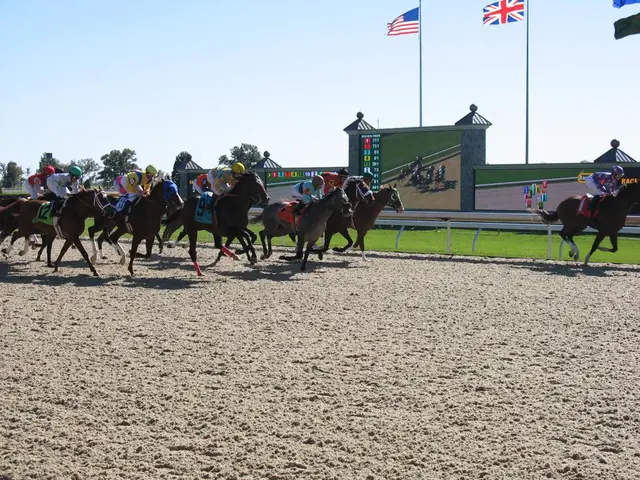Shaking Things Up: A Single Gambling Tax Proposal in the UK
UK Gambling Industry Warns of Potential Racing Industry Demise due to Proposed Tax Overhaul
By: Lucas Dunn04/29/2025 12:17 World Photo by Rawpixel, CC0 1.0
The gambling world is abuzz with the UK Treasury's latest proposal. They're planning to consolidate the three existing gambling levies — Remote Gaming Duty (RGD), General Betting Duty (GBD), and Pool Betting Duty (PBD) — into one unified tax rate. But what does this mean for the industry, the jobs, and the betting platforms?
Lucas, a New Jersey-born copywriter, has been weaving through the casino, software provider, and game reviews, news, and blogs for over six years. Working with an international clientele from the USA, the UK, New Zealand, Australia, South Africa, and Canada, Lucas is part artist, part psychologist, and all writer. Before he dived into the world of gambling, he studied psychology at Rutgers University. When he needs to unwind, Lucas picks up a paintbrush, following in his father's footsteps.
This reform could have far-reaching implications. Let's take a closer look at the potential impacts.
The Balancing Act: Simplification vs. Tax Burden
- Simplification
- The proposal could make things easier for both operators and regulators by simplifying the administration, reducing complexity and compliance costs.
- Tax Burden
- If the new, unified rate is set at the highest current rate (21%, currently applicable to RGD), it may increase the tax burden for some operators, particularly those on lower duty rates such as GBD and PBD (at 15%).
Job Losses: A Hefty Gamble
- Job Threat
- The increased tax burden for some operators could push them towards being unviable, potentially resulting in job losses or reduced investment in the sector.
- Sector Shrinkage
- Estimates suggest a possible 10-15% reduction in gambling venues, though these figures are more closely tied to broader regulatory changes than just tax consolidation. A heavier tax burden could lead to further sector shrinkage.
Competing with the Unregulated: A Tough Battle
- Operational Challenges
- The higher taxes could squeeze margins, making it difficult for regulated platforms to compete with unregulated offshore operators who do not face similar tax obligations.
- Market Exit
- Some operators might withdraw from, or reduce their UK-facing offerings if the tax becomes too burdensome, undermining the government's aim of keeping gambling within a regulated environment.
Collecting More, Doing More
- Increased Revenue
- If properly managed, the unified tax could generate extra tax revenue for the government, potentially in the tens of millions from related reforms.
- Funding for Preventing Harm
- A portion of the additional revenue could be used to fund treatment for gambling-related harm, as part of the broader UK gambling reform.
Rocking Traditional Sectors
- Financial Insecurity
- Traditional sectors such as horse racing could suffer if the gambling industry as a whole is destabilized. These sectors rely on betting activity for funding and could be affected if the reforms lead to instability.
A Delicate Dance
The consolidation of the UK's gambling levies into a single tax rate could streamline regulation and perhaps boost public revenue. However, the risk of increased tax burdens, job losses, and instability for both regulated platforms and traditional sectors like horse racing is significant. To achieve a sustainable solution, careful calibration of the new rate is crucial. Industry participation in the consultation process appears vital in shaping the future of gambling in the UK.
- The shift towards a unified tax rate could potentially benefit online casinos by simplifying the administration, reducing complexity, and lowering compliance costs.
- If the new tax rate is set at the highest current rate, it could lead to a heavier tax burden for operators in the slots machines and racing sectors, which currently pay lower duty rates (GBD and PBD).
- The increased tax burden could potentially lead to job losses or reduced investment in the online casino and sports betting sectors, causing a possible 10-15% reduction in gambling venues.






